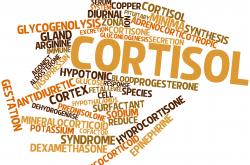Running on Empty: Fatigue and the Menstrual Cycle
Exhaustion during the menstrual cycle can be a frustrating experience for many women, especially when it recurs each and every month. For those women, the fatigue can make their periods even more of a chore than usual.
The menstrual cycle is one of those facts of life that women have to deal with prior to menopause. While it represents an inconvenience for all women, for some it can be even more disruptive. Women who find that they are experiencing high levels of fatigue during their menstrual cycle often note that they lack the energy needed to meet daily obligations. To counter that exhaustion, every woman should understand why fatigue can occur, what lifestyle factors can contribute to it, and the life changes they can make to counteract it.
Why Fatigue Accompanies the Menstrual Cycle
Though there is some disagreement about exactly how the menstrual cycle might cause fatigue, there is some evidence to suggest that hormonal changes during the period may be a significant factor. In studies, researchers have noted that two key hormones, estrogen and progesterone, are at low levels beginning about two to three days before the onset of menstruation and continuing until ovulation. Researchers believe that these low hormone levels disrupt the body’s ability to properly metabolize the energy it needs to maintain normal activities.
In addition, the low level of these critical hormones also has the net effect of leaving more waste for the body to deal with as carbohydrates are processed. This waste includes carbon dioxide and lactic acid, both of which can contribute to sore muscles and tiredness.
Other Factors That Might Be In Play
Hormonal factors are, however, seldom the only things contributing to a woman’s fatigue during the menstrual cycle. Many experts point to diet and stress as the two key causes for most forms of exhaustion, and research would seem to validate that assertion. As a society, we have understood for some time now that the foods you eat play a critical role in your overall healthy – and that includes your energy levels.
As food has become more readily available and conveniently packaged for quick consumption, our diets have become saturated with sugar, salt, and the worst kind of fats. Often times, these foods can provide an immediate burst of energy, only to leave you feeling empty and lethargic an hour or two later. To make matters worse, many of us are so tired on a regular basis that we rely on stimulants like caffeine to power us through our mornings, only to experience a crash later in the afternoon. Finally, the relatively modern concept of eating three big meals a day tends to exacerbate the worst effects of other poor eating habits. Without a more consistent influx of quality nutrients, the body’s energy levels rise and fall like a rollercoaster throughout the day.
And then there are the medical issues that often plague women. Iron deficiency can lead to anemia, which is an exhausting condition on its own. The stress of dealing with tiredness can result in an increased stress response, which can affect cortisol levels and disrupt the body’s normal functions. It doesn’t take long for those disruptions to manifest as extreme fatigue.
How to Deal with Menstrual Cycle Fatigue
There is reason for hope, however! The fact is that the fatigue you may feel during your menstrual cycle is something that you can minimize with the right focus and plan. To do so requires certain lifestyle changes, but the potential benefits make the time and effort expended in these areas well worth it in the end.
Dietary Changes
There are a number of dietary changes that you can make that will aid you in your battle against menstrual fatigue. In fact, many of these changes can help you to enjoy higher energy levels at any time of the month:
- Eat whole foods, and obtain your protein, carbohydrates, and fats from a variety of sources. Choose lean protein sources, complex carbohydrates, and healthy fats.
- Eat multiple times throughout the day, and consume smaller portions at each meal. That can help to ensure that your body is receiving a steady supply of nutrients, and can normalize blood sugar levels and prevent energy spikes and crashes.
- Stay hydrated. Most experts agree that you should drink around eight glasses of water each and every day.
- Even if you’re accustomed to drinking coffee or other caffeinated beverages daily, abstain as much as possible during your period. That can help you to mitigate those energy spikes that inevitably lead to crashes.
- Indulge yourself with a little chocolate each day. Chocolate has mood-altering properties that can help to relieve the stress you’re feeling. Just use some moderation and don’t go on a chocolate binge! A small piece of the sweet stuff is usually all it takes.
Exercise for Energy
Exercising is critical at any time of the month, but it can be especially helpful during times where you’re feeling lethargic. Though it might seem odd, exercise actually helps to boost energy levels by revving up the body’s systems. When you get your body in motion, your heart rate, respiration, and other systems kick into overdrive. That can help to speed blood flow, which in turn results in the body delivering nutrients to the cells in a much more rapid fashion.
Supplements and Medications
Since few of us ever manage to obtain all the vitamins and minerals we need from food alone, it may be necessary to consider supplements. Most women should focus on taking a multivitamin of some sort every day, to ensure that they have the calcium, magnesium, and iron they need for sound health. That can be especially important during your period.
As for medications, there are some that may help with the worst effects of the menstrual cycle. Sometimes, reducing the impact of those symptoms can result in a reduction of stress, and that can lead to less fatigue. Before taking any medications, however, you should consult with your doctor so that he or she can help you choose the right option for your needs.
In the end, the menstrual cycle is something that all women just have to deal with as best they can. On the other hand, that does not mean that they have to just accept the exhaustion that can accompany that time of the month. Once you understand why you are so exhausted and learn how to counteract that fatigue, you can spare yourself the worst effects and enjoy the energy levels you need to better manage your period.
You might also be interested in:
- PMS & PMDD Fatigue & Tiredness. http://www.pmscomfort.com/pms-pmdd-symptoms/pms-pmdd-fatigue-tiredness.aspx
- Ask a Scientist: Why Am I So Tired During My Period? http://www.youbeauty.com/health/why-am-i-so-tired-during-my-period/
- Fighting Period Fatigue. http://health.cvs.com/GetContent.aspx?token=f75979d3-9c7c-4b16-af56-3e122a3f19e3&chunkiid=26023
- How to Overcome Extreme Fatigue during Menstruation. http://www.livestrong.com/article/93433-overcome-extreme-fatigue-during-menstruation/




















Leave a comment